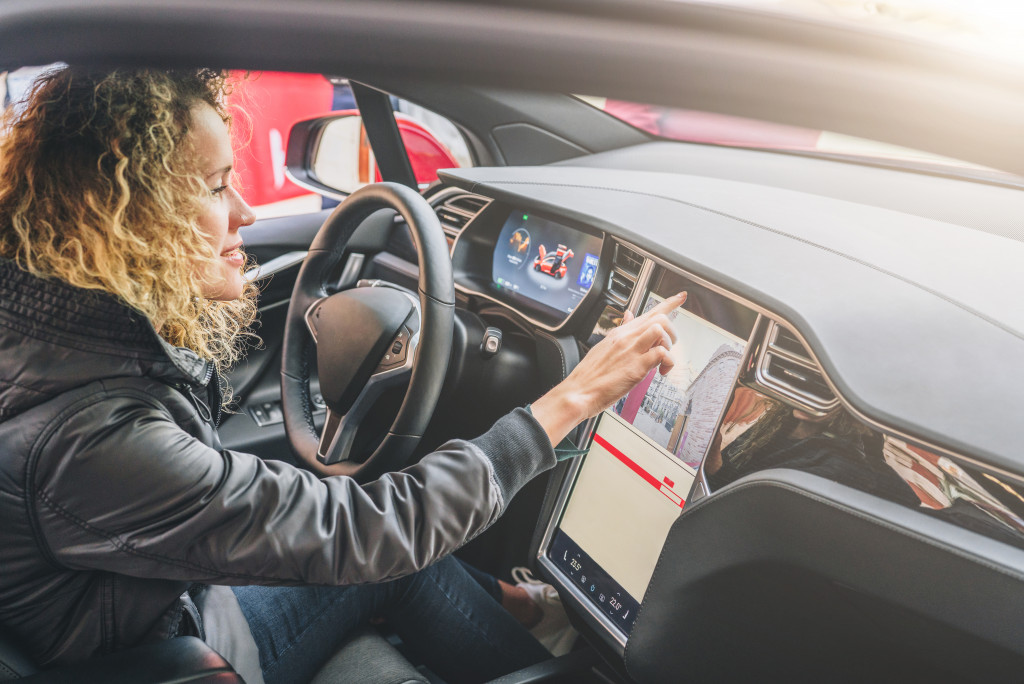The automotive industry is constantly evolving and changing. It adapts to emerging technology and answers consumer needs like no other industry, and the car industry in 2021 is significantly different from the years prior. These trends aren’t just momentary fads; many experts predict that these changes are here to stay. Let’s take a look at what these developments are and how they affect consumers and the manufacturing industry.
Autonomous Vehicles Are Here
Once only found in the realm of science fiction, self-driving cars have finally arrived and are in a fully operational capacity. An autonomous vehicle drives itself from point a to point b using a predetermined route while using various types of in-vehicle gadgetry like motion sensors, active steering, GPS navigation, and laser sensors.
As the public awareness of self-driving cars increases, so does the demand for them. Many car owners find self-driving cars favorable, albeit with some reservations, and are looking to purchase one for themselves in the future. As more and more car manufacturers pick up on autonomous vehicle technology, we can only expect this demand to increase in the future.
Developments in Human-machine Interface
Just as autonomous vehicles introduced a whole new level of science-fiction-like innovations to the modern automotive industry, so does the human-machine interface that makes everything look so futuristic. While older analog cars use gauges to display critical information like fuel level, speed, or oil level, newer cars use touchscreen monitors to provide information.
But this isn’t where the line ends: voice-operated commands and haptic feedback can be used to operate vehicle interfaces. Car owners can control their car to a deeper level now, making the entire experience safer. Automotive HUDs are now being developed, providing a seamless visual experience for drivers and allowing them to focus on the road while seeing their metrics.
For manufacturers, this involves creating an almost entirely new department: one that deals with the software side of things. However, this development isn’t for naught, as these technological advancements also increase the value of newer vehicles.

Computer Power Alongside Horsepower
As mentioned in the last point, carmakers now have to integrate a digital system into their cars. Digitally powered cars using complex CPUs are a mainstay in 2021, and manufacturers now compete with each other through horsepower and computing power. Self-driving AI, GPS navigation, real-time traffic updates, and even self-diagnostics are all achieved through a car’s computer power.
This means that car manufacturers are limited to following industry trends within automotive and industry advancements in the field of personal and portable computing. The integration of computers and cars is another science fiction idea that has come to fruition, and both makers and consumers are better poised to take advantage of it.
Cars Are Safer Than Ever Before
Perhaps one of the most significant developments in the car manufacturing and retail industry is how today’s vehicles are far safer than the cars of yesteryears. This is all thanks to the constant research and development, resulting in an advanced engineering method, in-depth and never-ending analysis of crash data, and the integration of findings to newer cars.
For manufacturers, this means fewer cars coming back totaled, reducing the need for reverse logistics and damage analysis. Even in non-accident-related aspects, cars have improved. There’s better air circulation and temperature management, more sophisticated auto window tinting to provide both shade and aesthetics, and a considerably more ergonomic design layout.
The Rise of Electric Cars
Battery-powered vehicles are by no means new but only recently are scientists able to create a powerful vehicle that can reliably transport people entirely running on electric power. Despite their relatively young status, electric vehicles are predicted to take over gas-powered cars in the coming years. Especially with how environmentally aware people are, the need to reduce the reliance on fossil fuels is becoming more and more of a consumer demand.
Sales for electric cars have reflected this demand, and it’s projected to increase as the years go by. In 2019, there were 2.1 million sales, showing a 6% growth compared to the previous year. In a future nearer than what many of us would imagine, we would see the dominance of electric cars on the road, perhaps putting gas-powered vehicles into a niche segment.
Change is the only permanent thing in society; this is even in full effect when looking at the automotive industry. Consumer demands and the technology to create more optimized vehicles have been the driving force for change. The future seems positive for car manufacturers and car owners as a whole.
